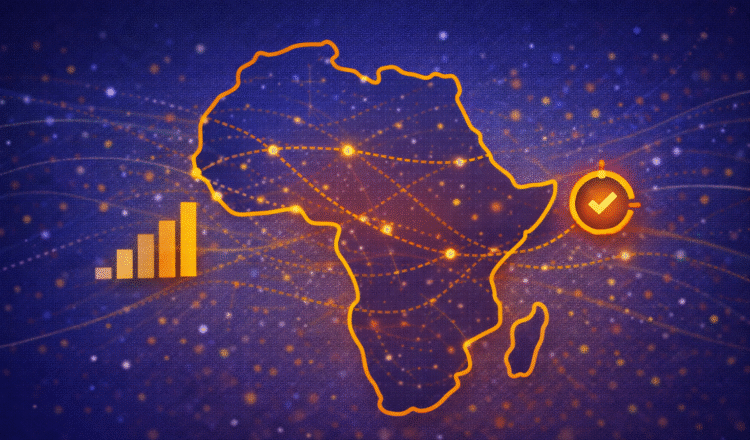The Future of African Fintech: Trends to Watch in 2025–2030

Introduction: Africa’s Fintech Revolution Is Just Getting Started
Africa’s fintech story is one of leapfrogging – skipping legacy infrastructure and moving straight into digital innovation. Over the past decade, the continent has witnessed explosive growth in mobile money, digital wallets, and cross-border payment systems. But as we step into 2025 and beyond, fintech in Africa is entering a new, more sophisticated phase – one defined by interoperability, embedded finance, data-driven lending, and AI-powered personalization.
From Lagos to Nairobi, from Cairo to Cape Town, African fintech startups are not just catching up with global trends — they’re shaping them. The next five years will redefine how money moves, how credit is accessed, and how millions of underbanked individuals participate in the digital economy.
1. Interoperability: Building the Infrastructure for a Unified Digital Economy
The African fintech market is highly fragmented – each country has its own payment rails, regulations, and systems. Yet the future lies in interoperability – connecting these isolated systems into one seamless financial network.
Regulators and central banks are already moving in that direction. The Pan-African Payment and Settlement System (PAPSS) is making real-time cross-border payments possible across African currencies. Meanwhile, fintechs like Unipesa are building the bridges – offering APIs and platforms that unify fragmented ecosystems, enabling payments, remittances, and transfers to move freely across borders.
By 2030, we can expect Africa’s financial ecosystem to operate more like the EU’s single payment area, where interoperability will no longer be a competitive edge – it will be a baseline requirement.
Key takeaway: The fintechs that survive and thrive will be those that think beyond national boundaries and invest in cross-border infrastructure early.
2. Embedded Finance: Fintech Everywhere, for Everyone
One of the biggest shifts ahead is the rise of embedded finance – integrating financial services directly into non-financial platforms. Imagine a logistics platform offering instant loans to drivers, or an e-commerce site enabling customers to buy now and pay later without leaving the checkout page.
This model is exploding in markets like Kenya, Ghana, and Nigeria, where SMEs are adopting digital tools faster than ever. Platforms like Flutterwave, MFS Africa, and Unipesa are providing the rails that make embedded finance possible – offering APIs that plug payments, credit, and insurance into virtually any digital experience.
For Africa, this trend means financial inclusion on steroids. Millions who never had access to traditional banking will gain credit histories and financial services through the digital tools they already use daily.
Key takeaway: In the 2025–2030 window, every platform will become a fintech platform – whether it’s a ride-hailing app, marketplace, or utility payment service.
3. AI and Data-Driven Credit: Redefining Risk and Opportunity
Credit access has long been a bottleneck for African consumers and SMEs. Traditional banks rely on credit bureaus, but millions of Africans have no formal credit history. That’s where AI-driven lending comes in.
By analyzing alternative data – like mobile usage, payment behavior, and e-commerce transactions – fintechs are now able to assess risk and extend loans to the unbanked with remarkable accuracy.
AI will also drive personalized financial experiences, tailoring savings plans, investment products, and insurance based on user data. This will transform fintech platforms from transactional tools into true financial companions.
Example: Platforms like Carbon, Branch, and FairMoney already use machine learning to offer instant credit decisions. In the next five years, expect AI-powered fintech to become mainstream, with deeper integration into regional ecosystems.
Key takeaway: Data is Africa’s new currency – and fintechs that know how to harness it responsibly will shape the continent’s financial future.
4. Regulatory Evolution: Balancing Innovation and Consumer Protection
Regulation has always been both a challenge and a catalyst for African fintech. Between 2025 and 2030, we’ll see major progress toward harmonized, pro-innovation regulation across regions.
Countries like Kenya, Nigeria, and South Africa are already refining fintech licensing frameworks. The goal is clear: create environments that protect consumers without stifling innovation. The rise of regulatory sandboxes – like those in Ghana and Rwanda – allows startups to test products safely before full market release.
Expect greater collaboration between governments and private fintech players to address key priorities such as:
- Anti-money laundering (AML) and KYC modernization
- Data protection and digital identity frameworks
- Taxation and compliance standardization
- Crypto and stablecoin regulation
Key takeaway: The next generation of fintechs must build compliance into their DNA. Those who master regulation as a strategic advantage will win the trust of both regulators and users.
5. The Rise of B2B and Infrastructure Fintechs
In the early fintech boom, most startups focused on consumer wallets and apps. The next wave, however, is all about infrastructure – the invisible layer that powers banks, neobanks, and digital commerce.
Unipesa is part of this new generation of platform fintechs – companies that don’t just provide one product but power entire ecosystems. They build the rails for others to innovate on, enabling cross-border payments, API integrations, and financial interoperability at scale.
This B2B focus will dominate the next decade. Instead of competing for end users, many fintechs will compete to enable other businesses – creating a multiplier effect for Africa’s digital economy.
Key takeaway: The future winners will be those who build the infrastructure, not just the apps.
6. Digital Identity and Blockchain Integration
As Africa goes digital, identity verification remains one of the biggest hurdles for financial access. By 2030, blockchain-based digital identity systems may provide the solution.
Imagine a continent where every person has a secure, portable digital ID that can be used across banks, telecoms, and fintech platforms. Several projects – including the ID4Africa initiative – are already working toward this goal.
Blockchain also holds promise for cross-border settlements, smart contracts, and supply-chain finance, all critical areas for Africa’s trade-heavy economies.
Key takeaway: Blockchain will quietly underpin many of Africa’s fintech innovations – not as hype, but as practical infrastructure for trust, verification, and transparency.
7. Financial Inclusion 2.0: From Access to Empowerment
For years, “financial inclusion” meant giving people access to accounts or mobile money. The next phase is about financial empowerment – enabling people to grow wealth, manage risk, and participate fully in the economy.
This shift will see fintechs offering micro-investment tools, savings automation, and insurance products designed for informal workers and micro-entrepreneurs. By leveraging data and behavioral insights, fintechs can help users build sustainable financial habits.
Key takeaway: True inclusion is not just about access – it’s about empowerment. Fintechs that focus on user outcomes will define the next era of Africa’s digital finance.
8. The Green Fintech Movement: Finance Meets Sustainability
As climate resilience becomes a top global concern, a new category of green fintech is emerging across Africa. These platforms link financial inclusion with environmental impact – from carbon credit marketplaces to microloans for solar installations.
Innovative startups in Kenya, South Africa, and Egypt are already developing fintech tools that help track and finance sustainable projects. By 2030, sustainability metrics may become as central to fintech reporting as revenue and user growth.
Key takeaway: The next generation of investors, consumers, and partners will demand purpose-driven fintech – those that align growth with sustainability.
Conclusion: The Platform Decade Begins
Between 2025 and 2030, Africa’s fintech sector will evolve from a collection of isolated innovators into a connected ecosystem of platforms. The winners won’t just move money—they’ll move markets.
As infrastructure matures and collaboration deepens, companies like Unipesa are setting the tone for what’s next: borderless payments, API-powered connectivity, and financial systems that work for every African business and individual.
Africa isn’t just participating in the global fintech revolution; it’s leading it, on its own terms.




